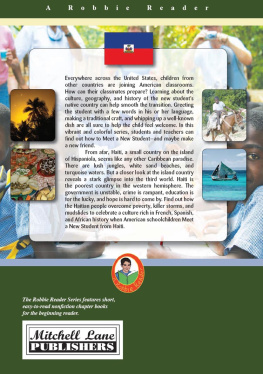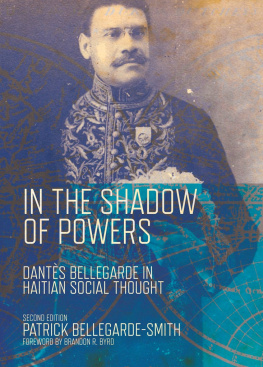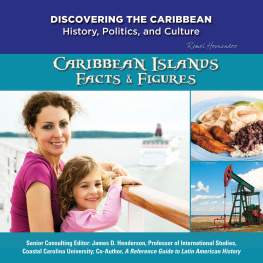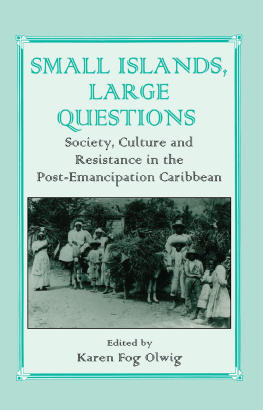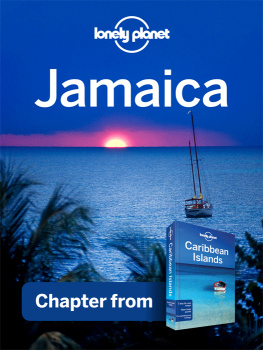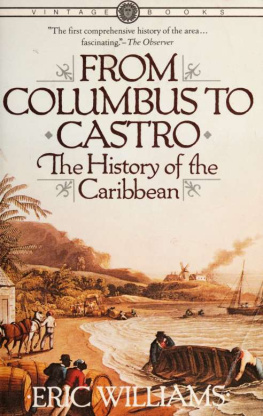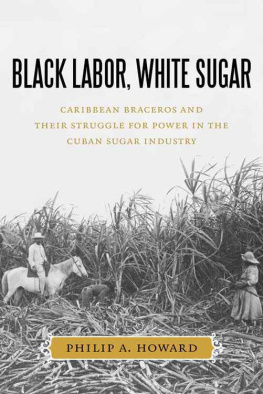Liberty, Fraternity, Exile
This book was published with the assistance of the Anniversary Endowment Fund of the University of North Carolina Press.
2014 THE UNIVERSITY OF NORTH CAROLINA PRESS
All rights reserved. Set in Quadraat by codeMantra.
Manufactured in the United States of America.
The paper in this book meets the guidelines for permanence and durability of the Committee on Production Guidelines for Book Longevity of the Council on Library Resources. The University of North Carolina Press has been a member of the Green Press Initiative since 2003.
Cover illustration: Prfte Duffaut, Jacmel (2000); courtesy of Legrand Monfle; used with permission of the estate of Prfte Duffaut.
Frontispiece: Deportation of Haitian Refugees at Port au Prince,
Daily Gleaner, 4 December 1908, 1908 The Gleaner Company Ltd.
Complete cataloging information can be obtained online at the Library of Congress catalog website.
ISBN 978-1-4696-1797-8 (pbk.: alk. paper)
ISBN 978-1-4696-1798-5 (ebook)
18 17 16 15 14 5 4 3 2 1
Part of this book has been reprinted with permission in revised form from H. G. and Haiti: An Analysis of Herbert G. DeLissers Land of Revolutions, Journal of Caribbean History 44, no. 2 (2010): 183200.
For Ishtar
If he went up to the house on the reefs in December it was not to pass the time with those refugees but to be there at the moment of miracles when the December light came out, mother-true and he could see once more the whole universe of the Antilles from Barbados to Veracruz... the line of islands as lunatic as sleeping crocodiles in the cistern of the sea.
Gabriel Garca Mrquez, The Autumn of the Patriarch, 1976
Contents
PART 1
Collapse, 18381859
PART 2
Revolutions, Rebellion, and Refugees, 18601870
PART 3
Disorder and Progress, 18701888
PART 4
A New Imperialism, 18901915
Maps and Illustrations
Maps
The West Indies and Central America, 1872, xvi
Jamaica and Haiti, ca. 1860, xvii
Illustrations
A. Duperly lithograph of emancipation celebrations at the race course in Kingston, 2 August 1838,
Notice for Haitian refugees in Kingston regarding return to Port-au-Prince, January 1859,
The eight accused in the Bizoton trial in Haiti, February 1864,
Morant Bay after the rebellion, 1865,
The departure of President Fabre Geffrard and family from Port-au-Prince, March 1867,
The arrival of President Fabre Geffrard and family in Kingston, March 1867,
President Lysius Salomon and the Port-au-Prince fires, April 1888,
A view of King Street from John Crosswells drugstore in Kingston after the earthquake, January 1907,
Guards stand at attention as rubble is cleared from Port Royal Street in Kingston after the earthquake, January 1907,
Sketch of Franois Manigat and J. Robert Love after their deportation from Haiti to Kingston, 24 January 1892,
Sketch of Rosalvo Bobo, Antnor Firmin, and P. F. Frdrique, 14 June 1908,
U.S. Marines in Haiti, 1915,
Acknowledgments
The idea for this book was planted in Haiti over a decade ago. Conversations with friends and families revealed in both delicate and conspicuous ways the intimate historical bonds between their country and mine. In Jamaica the idea grew. There it was encouraged by the same sources that gave it life in Haiti. Quite quickly it evolved from an intellectual curiosity into a more expansive project on interisland connections in the postslavery Caribbean, the results of which I offer in this study. By necessity I have had to travel within the Caribbean and back and forth across the Atlantic in order to tell this story. At every step of the way I have had the enormous privilege of a generous cast of people and institutions who supported me. It is with great pleasure that I thank them here.
I am indebted to the librarians and archivists who facilitated much of my research. In Jamaica Winsome Hudson, director of the National Library of Jamaica, and the staff of the NLJ have provided incredible service over the years. A very special thanks to Bernadette Worrell for her kind, patient, and enthusiastic help and for directing me to several very useful sources that I had not earlier considered and for which I am truly grateful. The staff at the Jamaica Archives in Spanish Town, the Island Record Office, and Father Gerry McClaughlin of the Catholic Archives have my deep appreciation. I must also thank the staff of the University of the West Indies, Mona, Main Library and the West Indies Collection for assistance. In Haiti I have had the good fortune for several years now of the support of librarians, archivists, and historians who have aided my research in so many ways. I thank Wilfred Bertrand of the Archives Nationales, Frre Ernest Even of Bibliothque Hatienne des Frres de lInstruction Chrtienne, Patrick Tardieu of Bibliothque Hatienne des Pres du Saint-Esprit, and Mme. Franoise Thybulle, former director of the Bibliothque Nationale dHati. For assistance in St. Thomas, U.S. Virgin Islands, I benefited from the expertise of the staff of the Enid M. Baa Public Library and Archives, especially Susan Lugo. Ronald Lockhart opened several doors. I owe much to Aimry Caron for his incredible generosity and for teaching me the history of his island. I am also indebted to Rob Upson of the Caribbean Genealogy Library, who went beyond the call of duty more than once. In Curaao I received friendly assistance from the staff of the National Archives. In England, I thank the staff of the UK National Archives, the Special Collections of the University of Londons Society for African and Oriental Studies, and the British National Library. In the United States, librarians and archivists at the University of Michigan, the University of Florida, Duke University, and Princeton University provided much-appreciated aid. Brooke Wooldridge and the Digital Library of the Caribbean deserve a special mention for being there.
In its earliest phase, research for this book was funded by the Department of Afroamerican and African Studies (then CAAS) at the University of Michigan, where I enjoyed a Dubois-Mandela-Rodney postdoctoral fellowship. In that year I benefited tremendously from travel and research and having an intellectual space to discuss my formative ideas. In Ann Arbor Jesse Hofnung-Garskof, Julius Scott, Rebecca Scott, and Richard Turits offered valuable research advice, feedback, and inspiration.
That the book could be completed in the time it has is due in many ways to the unwavering support I have received from the University of the West Indies, Mona. In 2011 I was fortunate to receive a Principals Research Grant, which gave me time away from teaching duties to focus on writing. My gratitude to the Principals Office of the Mona Campus and the faculty who supported the project. My views of the Jamaican past have been influenced by the work of my colleagues in the Department of History and Archaeology, from whom I continue to learn. I thank particularly Waibinte Wariboko and Kathleen Monteith, who as department chairs encouraged this project. I owe a special debt of gratitude to Swithin Wilmot. Over many years I have profited from his gracious sharing of his extraordinary knowledge of Jamaican political history, which has shaped my perspective on the politics and society of the nineteenth century.
Much respect is due to other friends and fellow searchers of the past, who read, listened, commented, and counseled at various stages. Among a very long list I must mention Sunil Agnani, Roy Augier, Alice Backer, Patrick Bellegarde-Smith, LeGrace Benson, Patrick Bryan, Thor Burnham, Carl Campbell, Jean Casimir, Michael Dash, Marlene Daut, Myrtha Dsulme, Rachel Douglas, Laurent Dubois, Alex Dupuy, Ann Eller, Charles Forsdick, Julia Gaffield, Dorris Garraway, David Geggus, Alyssa Goldstein-Sepinwall, Michel Hector, Bobby Hill, Kate Hodgson, Regine Jackson, Deborah Jenson, Joy Lumsden, Georges Michel, Martin Munro, Melanie Newton, Nick Nesbitt, Enrique Okenve, Millery Polyn, Kate Ramsey, Grace Sanders, and Chantalle Verna. Several genealogists assisted me along the way and indulged my frequent and often obscure questions about the family trees of nineteenth-century Haitians and Jamaicans. Many thanks to Maxime Dehoux, Peter Frisch, Patricia Jackson, and Donald Lindo, and to Stephen Porter for his hospitality and for going the extra mile in hunting down information I really needed. A very special thanks to my ever willing and admirably professional research assistants, Lucienne Cross and Deroi Brown, for their inestimable help on this project.



